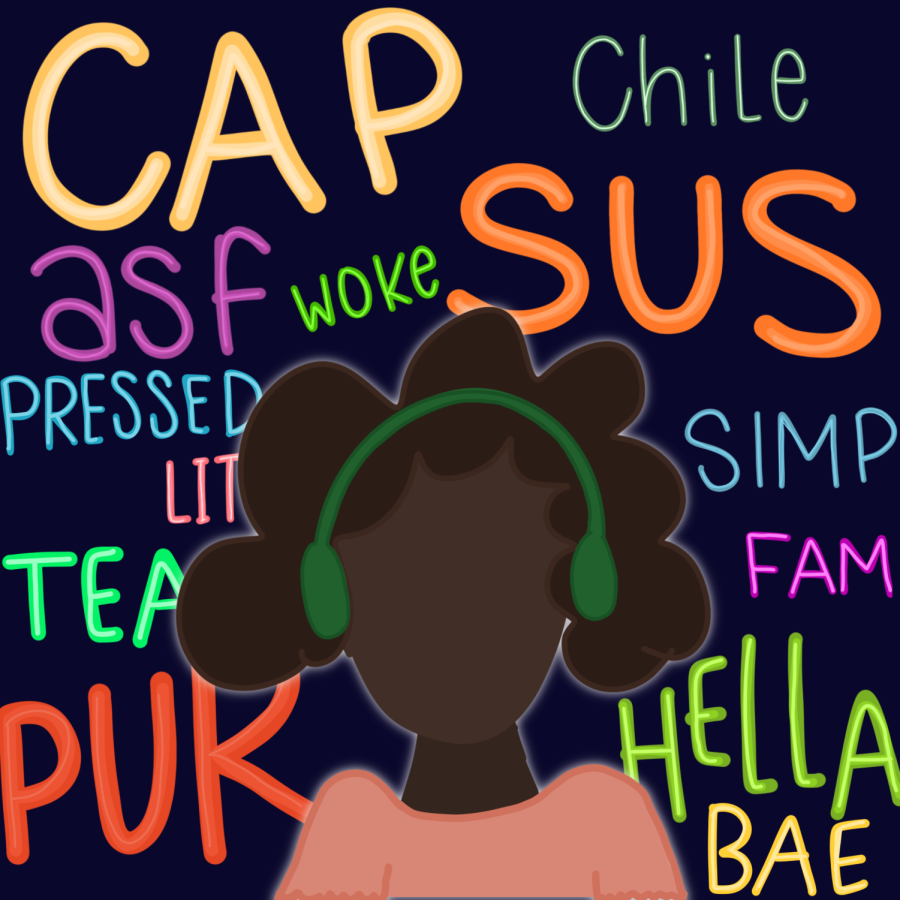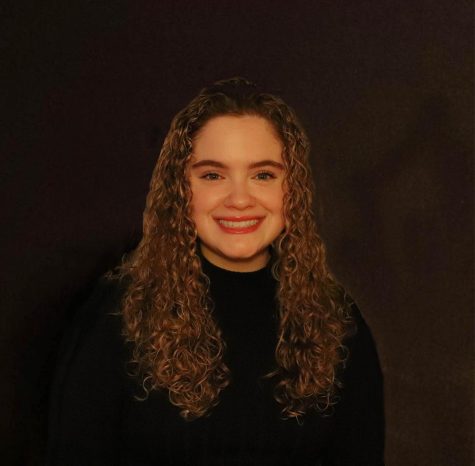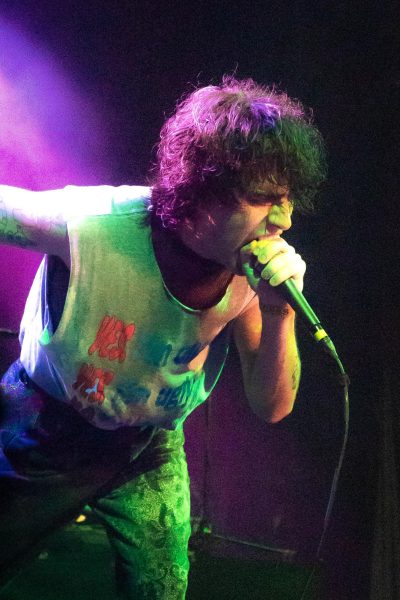The mislabeling of AAVE as internet slang
A discussion with Black Student Union VP of Internal Affairs, Alexis Garay
March 8, 2022
Take any sociolinguistics class and you will eventually come across African American Vernacular English (AAVE), also known as Black English. For generations, African American communities have created their own variation of English, which has fostered a strong sense of community and is an integral part of African American identity.
Even though it’s impossible to pinpoint exactly how many people actively speak AAVE, it clearly has a significant influence not only in real life, but in various aspects of pop culture like Hip-Hop, R&B and film. In spite of its widespread use and concise grammar and syntax rules, academics still debate whether AAVE should be considered a legitimate dialect such as other variations of English, like Hawaiian Pidgin or Gullah. This stigma and disapproval from society has caused AAVE speakers to be discriminated against for speaking the way they’ve been taught to since they were young. African American children are urged to speak Standard American English instead of AAVE in the classroom. It’s common to have educators tell them that they are speaking “incorrectly,” and: that their English is “broken” and must be corrected in order to lead a successful life in America. African Americans face language discrimination from an early age and this injustice persists well into their future adult lives, especially in professional and academic environments.
Nowadays with social media, people outside of African American communities have experienced some familiarity with AAVE. This new-found exposure to AAVE has led to internet communities, such as stans and fandoms, to utilize AAVE slang with no regards to the origins of such words. Although seemingly harmless at first glance, ignorance about AAVE language has led to widespread appropriation of Black English; it’s now being wrongfully regarded as internet or Gen Z slang.
Alexis Garay is Vice President of Internal Affairs of the Black Student Union at UTSA. Her time involved at the BSU has proven to be great space for her to grow personally and to educate herself about issues relating to the African American community. Garay discussed the popularity of AAVE in online environments, code-switching, why ignorance is harmful and the hypocrisy of having non-Black folks use AAVE in the first place.
When did you start noticing internet culture and Gen Z started utilizing AAVE more freely?
AG: It was mostly TikTok. First of all, everyone’s on TikTok. Secondly, Gen Z [us] we’ve grown up with, the internet and social media. So it’s very normal. And I feel like because of the internet, everyone’s kind of like, more aware of things, right. So they have access to hearing AAVE, whereas Black people, we’ve been speaking it since forever. We grew up hearing it in our households and stuff. I started to notice that [Gen Z] was on TikTok, and there were certain content creators who might use it. And then there’s people who are quoting internet memes or whatever, and they’re like, ‘oh, I’m just quoting like that one Nicki Minaj meme’ etc; it’s still AAVE.”
Mainstream media has mistakenly labeled AAVE as Gen Z slang. Why do you think that’s harmful?
AG: “It’s very harmful. I just feel like it speaks to a larger conversation that needs to be had about the popularization of Black culture as a whole. Specifically for AAVE, it’s very harmful, because Black people have been speaking this way, right? And when we do it, it’s ghetto. Or it’s like, ‘you’re uneducated.’ We get our grammar corrected. And we have to code-switch, right? But when non-Black people use it, it’s cool, it’s trendy. It’s what’s in right now. Right? Obviously, that’s harmful because there’s a double standard. Like, y’all are being praised for it while we get told we’re uneducated. ‘Oh speak proper English,’ but this is our language. You wouldn’t tell someone who speaks Spanish something like that you know? I just feel like it’s a big slap in the face because we’ve been speaking this way and now y’all are like [using it], it’s almost like appropriation, honestly.”
I’m glad that you pointed that out. Because young children from Black households like you speak a certain way, a certain dialect. So imagine going to school, speaking your way, your dialect and having your teacher tell you, ‘that’s broken English.’
AG: “And that happens a lot. And so we have to learn how to code-switch, because if we’re going into a professional setting, or an educational setting, we need to speak a certain way. But like, we’re just used to speaking a different way at home. Now all of a sudden, everyone’s talking like that. And they’re like, ‘oh, it’s just like, you know, stan culture.’ No, this is our culture. We’ve been speaking like this. Y’all just discovered it because of the internet.”
It’s not just internet culture. In reality, there’s a history behind it and most people don’t seem to know.
AG: “People love Black culture, but they don’t know how to identify it. It’s like, what you’re doing, we’ve been doing. This is our culture. They don’t like it when it’s authentic. When it’s authentic, it’s ghetto and ratchet. When y’all do it, it’s cool and trendy. There’s just a double standard, you know?”
What do you think is the line between Gen Z slang and AAVE? Is there even a line? Who has the right to utilize it?
AG: “That’s a good question. Honestly, like, it’s so hard because, like I said before, Black culture gets popularized and it becomes mainstream, then it kind of fades away just like other trends do, right? But it’s like, it’s hard, because now people equate it [AAVE] to being stan culture and Internet slang. So, I feel like everyone talks like that online. But then, in real life, it’s like most y’all don’t even speak that way. So, it’s kind of weird. Anyways, I feel like the line is very blurry. I don’t really know. I don’t want to speak on behalf of all Black people…it’s hard, honestly, it’s a hard question. Because it’s like you said earlier, they’re using it, but they’re not informed about it. I feel like if people were able to learn about it’s origins, and respect that this is a culture that’s been here; this is like how people speak, how we’ve been speaking, then I would feel a little better about it. To me, it seems like Gen Z is using it, and they don’t even know where it comes from. They don’t realize how harmful it can be.”
“And also, just use it properly. Because I know some people who use AAVE and it’s like, ‘you don’t sound right.’ There’s an actual grammatical structure to it that people aren’t even aware of. And it’s like, when you say things a certain way, it doesn’t make sense. I would say they need to be informed and respectful in order to use it just like any other language. But I don’t want to speak on behalf of all Black people because I know a lot of people who say we should gatekeep our culture because of these reasons. And I do agree to a certain extent.”
If you would like to learn more about the Black Student Union and find ways to become involved you can visit their Instagram: @utsa_bsu.













